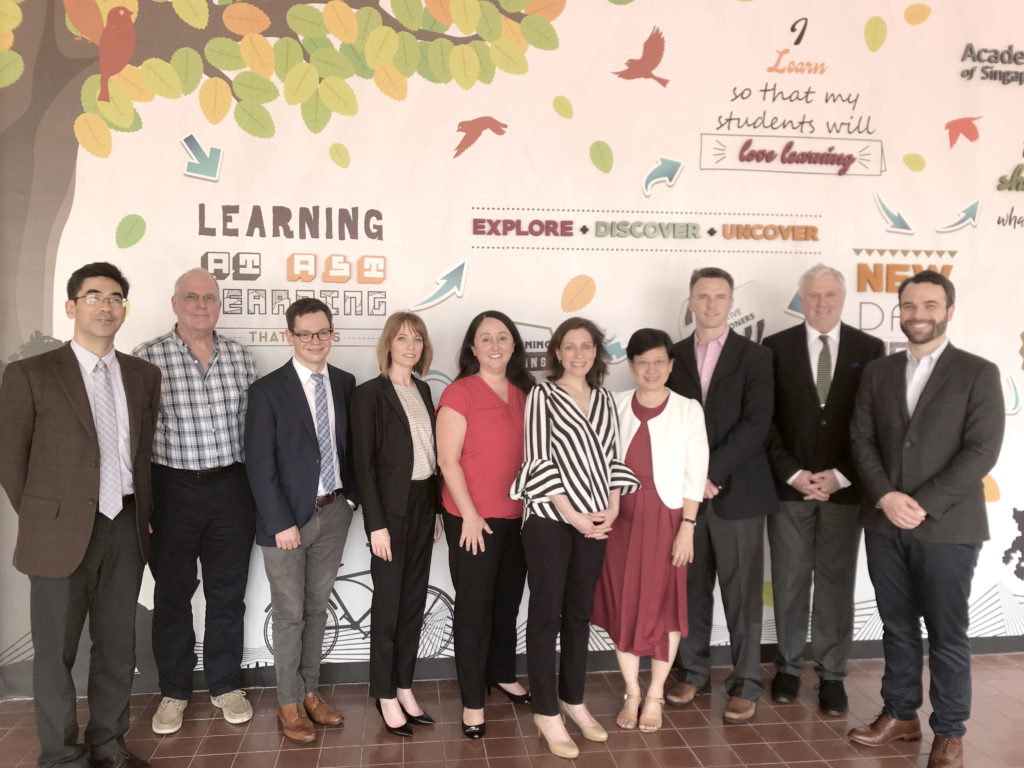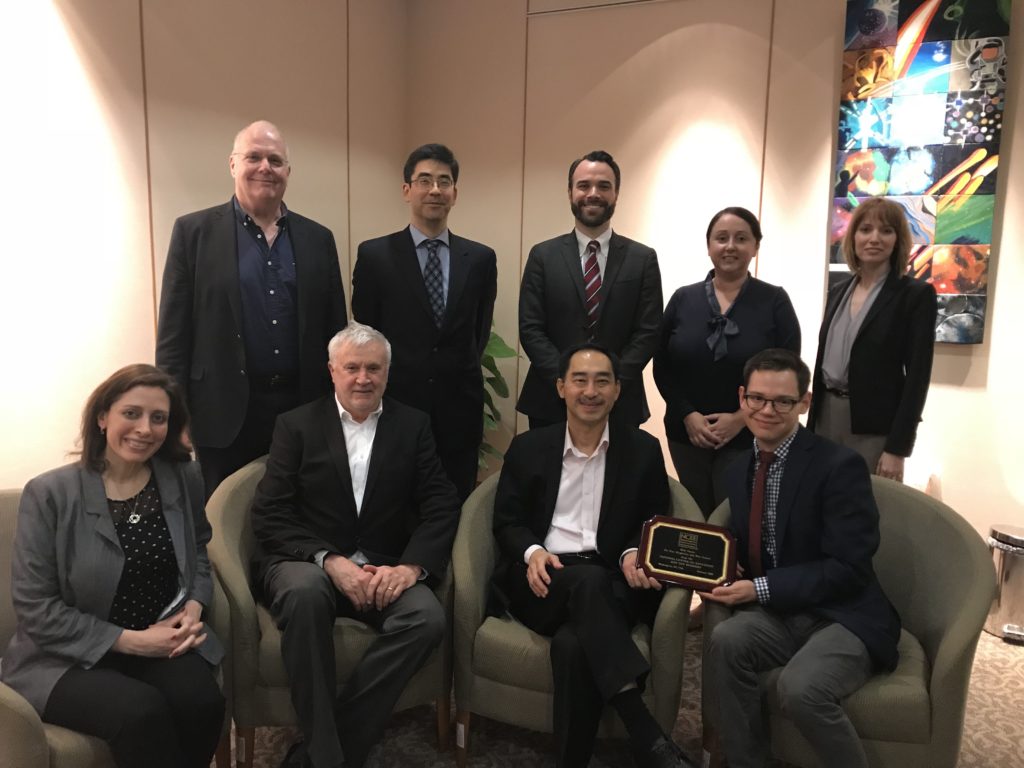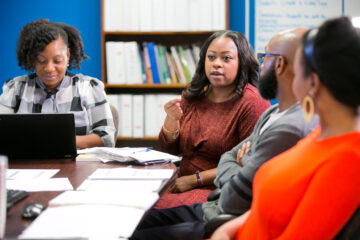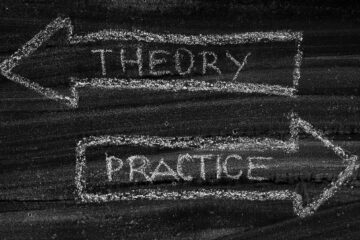Regular readers of this newsletter know well that the Center on International Education Benchmarking (CIEB) at the National Center on Education and the Economy (NCEE) funds and conducts research around the world on the most successful education systems to identify the strategies those countries have used to produce their superior performance in order to adapt lessons for use in the United States, within our own context.
What that means in practice is that in addition to supporting breakthrough research like Linda Darling-Hammond’s Empowered Educators and Ben Jensen’s Beyond PD, CIEB staff engage in global research into the top performers daily and several times a year will embark on benchmarking trips to those top-performing systems to learn first-hand in great detail the policies and practices that make these education systems world class.
Earlier this month, CIEB staff were joined by a group of NCEE colleagues from the National Institute for School Leadership (NISL) on a benchmarking trip to Singapore with the two-fold mission of better understanding Singapore’s educator career ladder system and to dig into how the nation supports its struggling learners. Singapore offers compelling insights for policymakers in the United States on both issues: its teacher turnover rate is very low, below 3 percent, and students in Singapore’s lowest-performing quartile as measured by PISA are a full year ahead of the average U.S. student. Also joining the NCEE team were senior staff from the National Board for Professional Teaching Standards (NBPTS) who are working with NCEE on a new educator career pathways project.

CIEB’s Research team with senior leadership from the National Institute of Education
Over five days, the team met with students, teachers, school leaders, cluster superintendents, leaders at the National Institute of Education, the sole teacher education institution in Singapore, and top officials in the Ministry of Education (MOE). These conversations, made possible with the support and assistance of MOE staff, yielded unique insights into the architecture of the Singaporean educator career ladder system.
The group had in-depth discussions with teachers and principals at schools across the system including elementary, secondary and specialty schools, seeing how the nation’s systems of supports for educators and students function on the ground. The group also spoke at length with leadership from the renowned Academy of Singapore Teachers, a veritable professional development college for Singapore’s educators, and representatives from the Academy of Principals (Singapore), the country’s professional association for school leaders. The team also visited with young teachers-in-training, experienced mid-career aspiring school leaders and the full leadership team at the National Institute of Education, with each giving greater texture and depth to the research team’s understanding of the system as a whole.
 CIEB’s research team at Academy of Singapore Teachers with AST Executive Director, Mrs. Yen Ching Chua-Lim
CIEB’s research team at Academy of Singapore Teachers with AST Executive Director, Mrs. Yen Ching Chua-Lim
During these visits and conversations, the research group saw firsthand how teachers-in-training were beginning to develop emerging identities as researchers and civil servants, how teachers at schools for Singapore’s most struggling students were able to offer small-group instruction and expertly tailor their lessons to those needing extra help, and how school leaders and their leadership teams regularly met to cultivate the professional learning needs and career development of their staff.
 CIEB’s research team with Director-General of Education Mr. Siew Hoong Wong
CIEB’s research team with Director-General of Education Mr. Siew Hoong Wong
Capping the trip was an inspiring and deeply informative dialogue with Singapore’s Director-General of Education, Mr. Siew Hoong Wong. Director-General Wong, a CIEB international advisory board member, is the top civil servant at the Ministry of Education and himself worked his way up the educator career ladder, beginning his career in 1984 as a classroom teacher. The combination of Mr. Wong’s personal experience throughout the education system and his breadth of understanding of how each of the various elements of the system were conceived of, developed and are now led, provides truly expert leadership for the Ministry and gave members of the research team a singularly comprehensive perspective on how and why Singapore’s career development systems were developed, improved and managed over the years.
Beyond providing a trove of future features and articles for this publication, the trip, as is the case with all of CIEB’s benchmarking work, will inform CIEB and NISL’s work to further NCEE’s mission of building an agenda for improving education in the United States based on lessons from the world’s best and most equitable education systems so that all student, particularly those who face the greatest challenges, have access to a world-class education.





